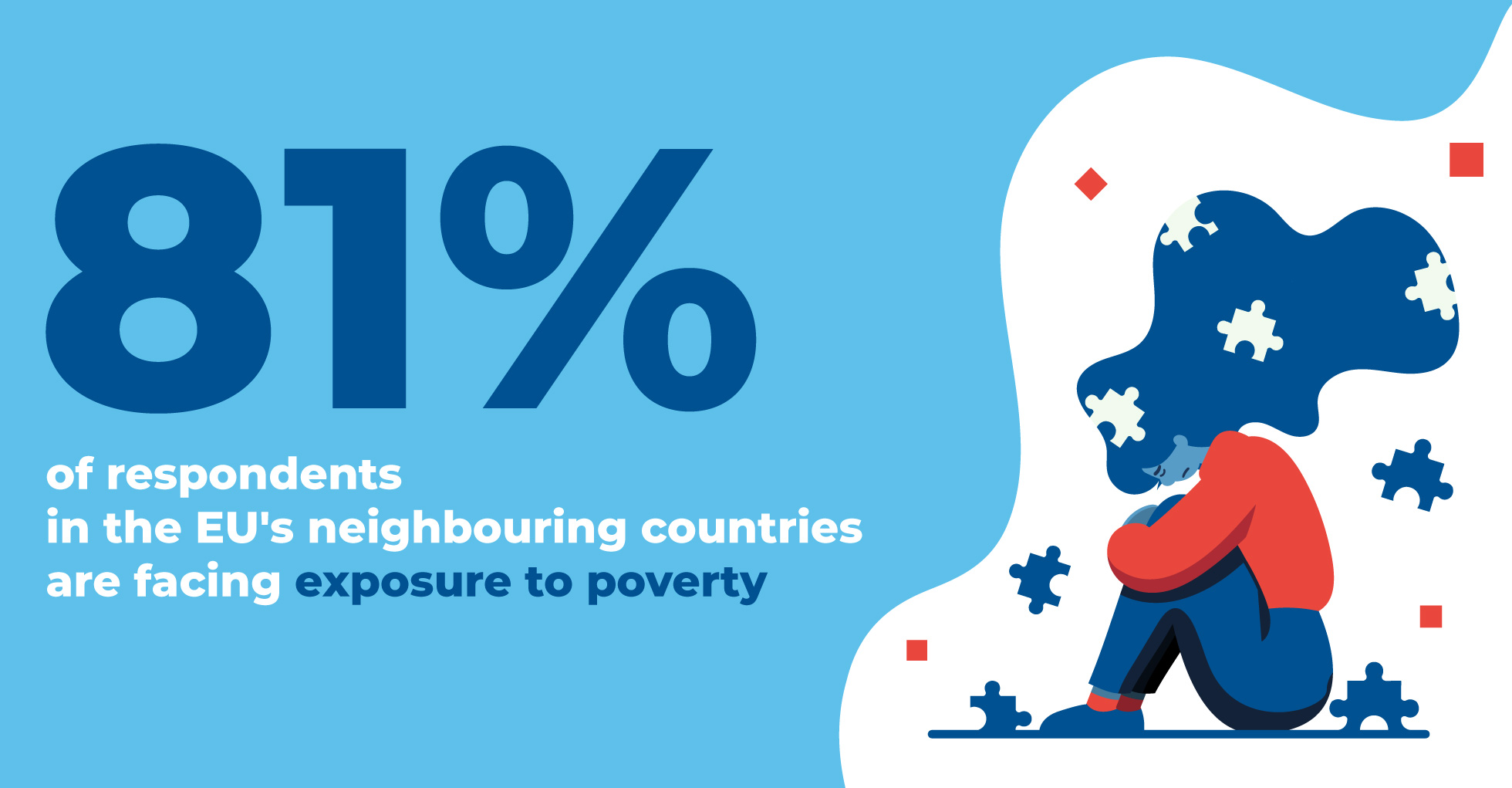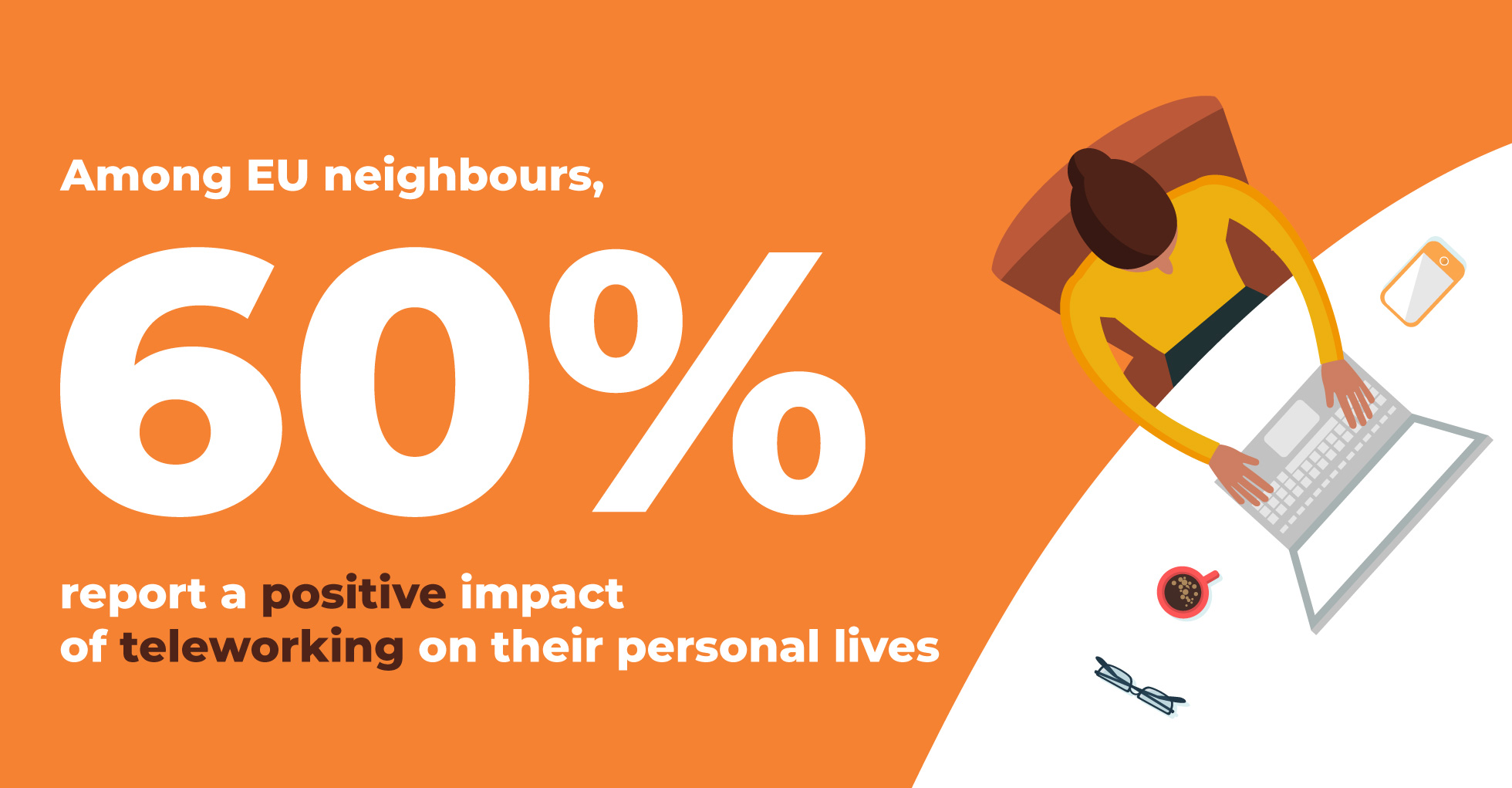
PRESS RELEASE - New study shows resilience and response in EU neighbours during pandemic crisis
A new study from the European Training Foundation (ETF) and Eurofound demonstrates the resilience and response that citizens in the EU and ten EU neighbouring countries faced during the COVID-19 pandemic. The report, Living, working and COVID-19, shows that despite the challenges, citizens from Albania, Georgia, Jordan, Kosovo*, Lebanon, Moldova, Morocco, North Macedonia, Palestine*, and Tunisia remain optimistic.
"At the ETF, we believe that investing in education and skills is the key to a better future for citizens in the EU neighbourhood," said Xavier Matheu, ETF Director ad interim." For this reason, we decided to contribute to the study, which was first launched by Eurofound in 2020 to capture the impact of the pandemic in the European Union and has now expanded its focus to include EU neighbours.”
The findings underscore the importance of investing in education and the potential of teleworking as a tool for work-life balance and flexibility and provide a roadmap for citizens in the EU neighbourhood to build a better future for all.
Poverty exposure rises amid social struggles
The COVID-19 pandemic continues to cast a shadow of financial insecurity and social turmoil over residents in the European Union's neighbourhood. The high number of people striving to make ends meet is particularly noteworthy, with 48% of people in the EU27 and up to 81% in the EU's neighbouring countries facing exposure to poverty. One in five people have lost their jobs or seen their working hours reduced, with 75% of young adults aged 18 to 44 reporting depression.

To alleviate these issues, policymakers must take action to safeguard families against homelessness, enhance childcare services, and guarantee access to quality healthcare, including mental health services.
Neighbours of the EU remain confident about better days ahead
The ongoing conflict in Ukraine, record high inflation, and rapidly escalating cost-of-living present significant challenges to citizens in the European Union's neighbourhood. Despite these difficulties, a substantial 63% of people in these countries remain optimistic about their future, outpacing the confidence of Europeans, where just 50% express a positive outlook.

Additionally, half of citizens in the EU's neighbourhood feel financially secure, despite the difficulties they face. This report underscores the strength and determination of these communities, shining a light on hope in the face of uncertainty.
Navigating the new normal: Embracing teleworking for a better work-life balance
Teleworking has become increasingly popular, but disparities persist between countries. A significant number of individuals in the EU's neighbourhood lack the technology and equipment needed for remote work. For those whose jobs are entirely 'teleworkable', EU neighbours have a higher proportion of employees who never work from home (62%) compared to EU workers (23%).

Despite these challenges, 60% of respondents reported a positive impact on their personal lives, showing the potential for teleworking to improve work-life balance and flexibility. To fully realise these benefits, investment in infrastructure and support systems is essential.
A path to prosperity: Education and training in the EU's neighbourhood
The report highlights that 73% of respondents lack access to education and training, with a higher prevalence in the Southern Mediterranean region.

The limited capacity of companies from EU neighbouring countries to offer or pay for job-related training is also demonstrated, with 53% of employed respondents stating that their employers did not pay for training. Improving access to education and training opportunities is essential for building the necessary skills and knowledge for success in the region.
European Year of Skills: Charting a course to a brighter future
The report confirms the role of skills development for citizens in the EU's neighbourhood to create a better future for themselves and their communities. With the imminent European Year of Skills, the report is a call to action for the development of essential skills. The EU's initiative will support small and medium-sized enterprises in addressing skills shortages and promote reskilling and upskilling of the workforce to boost the EU's 2030 social targets, which include 60% of adults participating in yearly training and 78% in employment.
What’s next
The European Training Foundation and Eurofound are now preparing for the 2023 edition of the e-survey covering more countries from the EU's neighbouring regions and all EU Member States. Next to living and working conditions, the research will shed light on access to and quality of education, training, work-based learning and career development opportunities. Results will become available in the second part of the year.
Background
The 'Living, working and COVID-19' survey, first launched by Eurofound in early 2020, aims to capture the wide-ranging impact of the pandemic on the work and lives of EU citizens. The fifth round of the survey, which was implemented in spring 2022, also sheds light on a new uncertain reality caused by the war in Ukraine, record-high inflation, and sharp rises in the cost of living. The Eurofound-ETF report provides a comprehensive picture of the impact of COVID-19 on the lives and livelihoods of people in the EU and its neighbours.
For more info:
- ETF and Eurofound report Living, working and COVID-19 in the EU and 10 EU neighbouring countries
- European Year of Skills